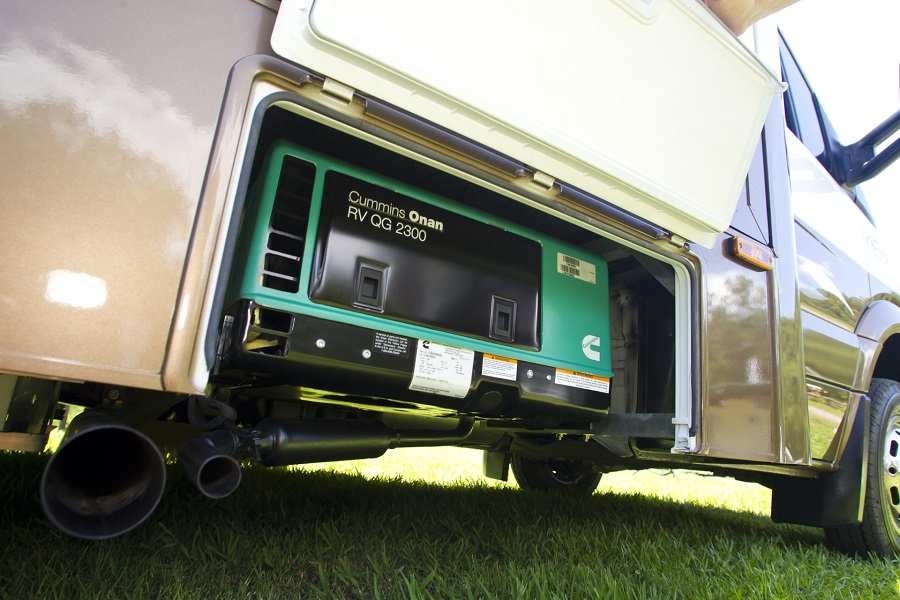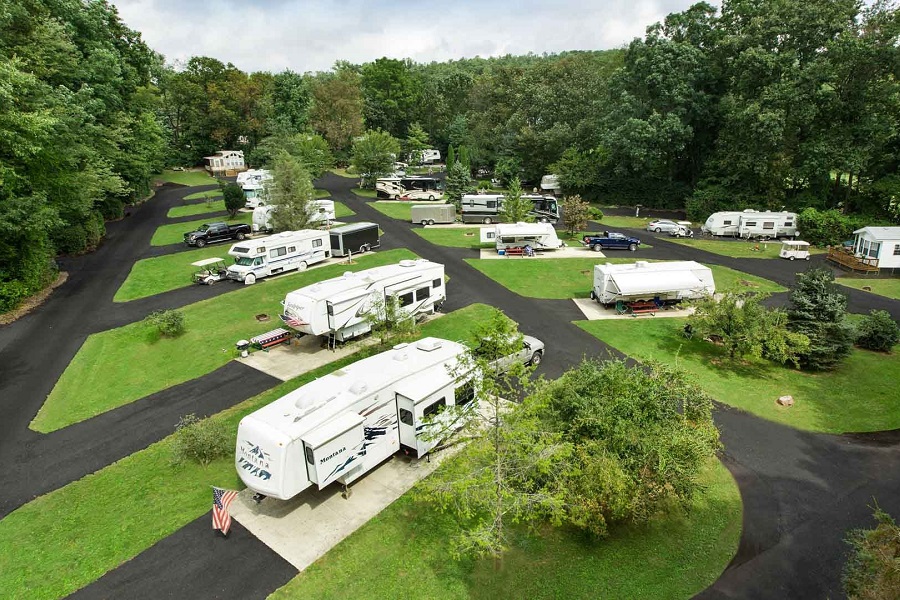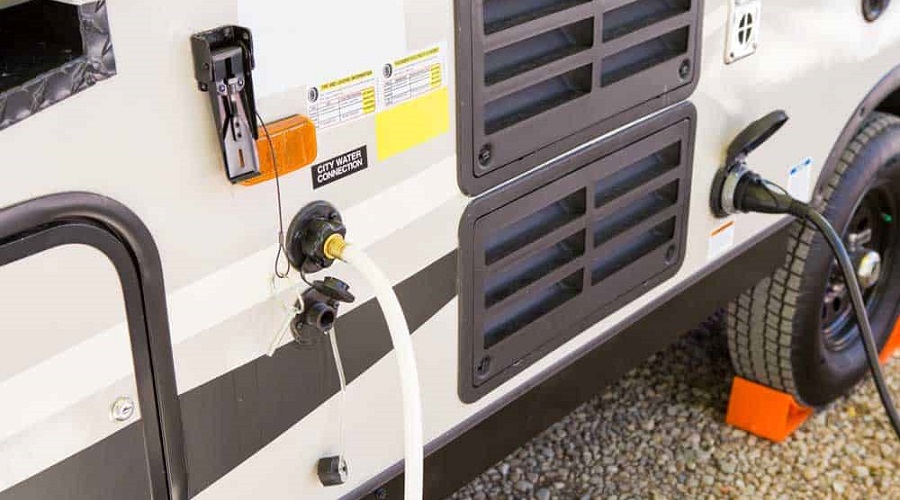The pop up camper weight of today has come a long way, and these snazzy recreational vehicles are now more efficient than ever.
If you’ve been dreaming of owning one of these campers, you’ll need to choose the perfect fit for your travel plans, and by far the biggest factor to consider is its weight.
What is the average pop-up camper weight?
A standard pop-up camper can range in size from a little over 700lbs to up to and beyond 4,000lbs, depending on the style, materials, and features you choose.
The weight of a camper matter as it will determine what you can carry, the vehicle you’ll need to use it with, and other factors you have to keep in mind for a safe and comfortable trip.
To help you navigate the tricky subject of pop-up camper weight, we’ve answered all of these questions and more.
With the right size camper attached to your car, you’ll have enough room for everything you need, and more, as well as guaranteed safety and comfort on the road.
What is a Pop Up Camper Weight?
A pop-up camper is a term used to describe a recreational vehicle that’s compacted or collapsed down to be towed behind a car.
When it’s not being towed, the camper pops out or extends to offer more interior room, so that you’re not having to drive with such a large vehicle attached to your car.
Pop-up campers come in all shapes and sizes, and it depends entirely on what the owner hopes to get out of their travels.
A standard setup for a pop-up camper is a trailer frame with a hard roof and soft walls made of materials like canvas or vinyl that allow it to extend out.
Inside the camper can be as basic or advanced as you like but they usually include things like bedding and a dining area.
These campers are usually attached to the back of a car using a rear hitch and then towed along, so you have to make sure your vehicle is the right size to accommodate it.
They’re smaller than standard RVs and usually a lot cheaper, the pop-up camper is a great option for people wanting to see more of the outdoors without the high price tag.
Why Weight Matters for These Campers

Compared to a traditional RV that drives itself around, you’ll need to tow a pop-up camper with your vehicle.
Therefore, you need to choose one that suits your current car or have a plan to upgrade so it can meet the requirements of your dream pop-up.
In most cases, the larger the camper, the heftier your towing car will need to be, but that doesn’t mean everyone has dreams of driving the biggest and baddest pop-up camper around whenever they want to go on vacation.
You might be happy with something compact and don’t need every single mod-con that’s available, which most modern cars are capable of towing around.
When a pop up camper is sold, it’s advertised by its dry weight, which means just the camper alone.
It can be tempting to get excited when you see this, but you have to factor in everything else you want to take with you, which tends to add up.
A standard camper will carry things like kitchen supplies, bedding, appliances, and more, so don’t forget these in your calculations.
Common Terms to Learn About Pop Up Camper Weight
To ensure you’re shopping for the best pop up camper weight and choosing one that fits your vehicle best, there are some terms you’ll need to know.
These are commonly found when labeling campers and can help determine weight recommendations.
- Unloaded Vehicle Weight (UVW): This is the dry weight of the camper which includes the hitch, axles, and gas tank.
- Cargo Carrying Capacity (CCC): The weight of contents you’re allowed to add to the camper for things like water, food, and electronics.
- Gross Axle Weight Rating (GAWR): The gross weight that the camper’s axles can support without being unsafe.
- Gross Vehicle Weight Rating (GVWR): The maximum weight that the trailer should be with everything inside, and the weight of the passengers, cargo, and towing vehicle.
The Different Factors That Affect Their Weight
The weight of a pop up camper weight isn’t just about how big it is, as there are lots of other factors you have to take into consideration.
Most importantly, the materials that were used to construct the camper will have a lot of impact on how heavy it is, as well as things like the roof, lift system, and floor.
Materials
A lightweight all-aluminum pop-up trailer has benefits like being lightweight and easy to transport, but they also offer minimal insulation so they don’t handle extreme weather conditions that well.
A heavier pop-up camper could feature all of the latest and most comfortable elements but requires an expensive vehicle to tow it, so it depends entirely on what you’re after.
Roof
A quality roof is important for the life of your camper, and today’s most popular options are rubber, plastic, and fiberglass.
For a more durable option, fiberglass is best but plastic is preferred for its cheaper cost and light feel that won’t affect your traveling load too much.
Lift system
This is responsible for lifting the roof of the camper up when it’s ready for action.
Older models use a heavier winch system that adds a lot of weight but modern campers utilize a new method that weighs a lot less.
Flooring
The flooring of your camper will affect not just its look and feel, but also the weight, and vinyl, laminate, and carpet are the most popular.
Vinyl is the lightest but it has downsides like expenses in installation and looks, whereas carpet is comfortable but heavy.
Contents
The contents and cargo that you carry in your camper will have a huge effect on its overall weight.
However, there are ways to reduce your load when traveling and smart methods of packing and storing goods that can help.
What Vehicles Are Best for Pop Up Camper Weights

If you’re choosing a new vehicle based on its ability to carry a pop up camper, the good news is many modern makes are capable of doing so.
Some compact campers are so lightweight they can be carried by a motorbike, so you’ll be able to find the perfect fit for yours.
To determine the capability of your current car, you can check its make and model online to find out more details.
This should provide you with a tow rating which you’ll be able to check against the pop-up camper.
Otherwise, do a search online for your vehicle’s VIN number online and cross-check this way.
Keep in mind, you’ll have to add the weight of whatever else you’re taking along, as the campers are labeled with their dry weight only.
It’s best to stick a little under what your car is capable of to avoid overlading which can be potentially hazardous when you’re out on the road.
Getting the Perfect Size Camper For Your Travels

There’s nothing better than setting out onto the open road on an adventure with a camper following behind you, but only if it’s the ideal size.
Getting this one part right will make a world of difference when you own a pop-up camper, so make sure you spend some time choosing one that suits your vehicle, travel plans, and personal needs.
Related Questions
Pop up campers are a fun and affordable way to get out on the road but there’s a lot to learn if you’ve never owned one before, especially when it comes to choosing one based on weight.
If you want to know more about these unique trailer campers and what they’re capable of, read on to see some FAQs that others have had about them.
How Long Does it Take to Set Up a Pop Up Camper Weight?
The time needed to set up a pop up camper weight depends on the make and model of it, as well as your experience.
Do Pop Up Campers Leak When It Rains?
Although the sides of pop up campers weight are constructed from fabric, they’re designed not to allow water in. Modern campers are better equipped at keeping out the rain but there are other things you can do to prevent leaks, like applying a cover and ensuring the exterior is air-tight without gaps or tears.
Resources:



